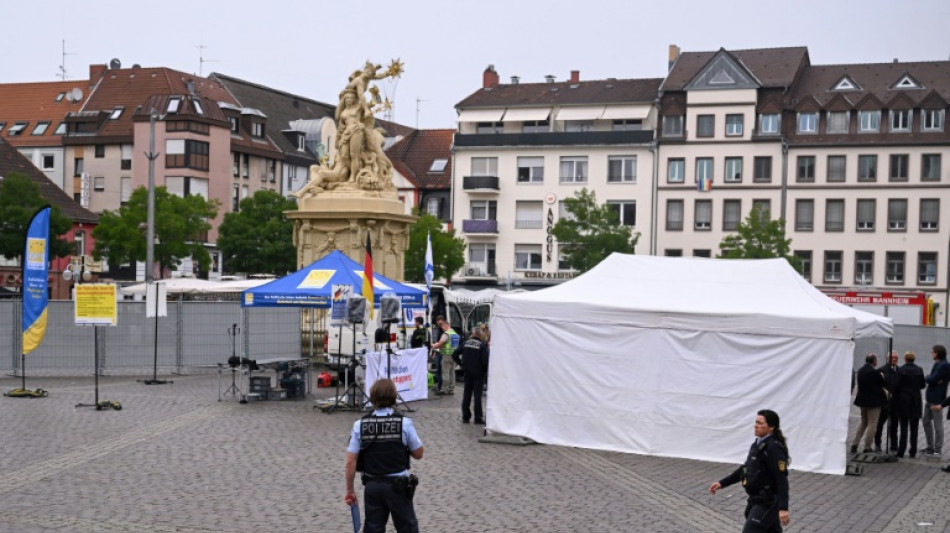

Afghan faces trial over deadly knife attack on German policeman
An Afghan man with suspected jihadist motives goes on trial in Germany on Thursday over a knife attack that killed a policeman and wounded five others at an anti-Islam rally last year.
The hearings will start less than two weeks before German elections and at a time of heated debate about immigration and public security following a spate of deadly attacks blamed on asylum seekers.
The defendant, only partially named as Sulaiman A., allegedly used a large hunting knife in a stabbing rampage targeting a rally by Pax Europa, a campaign group against radical Islam, in the western city of Mannheim.
The knifeman initially attacked a speaker and other demonstrators, then stabbed a police officer who rushed in to help, and who died later the same day of his wounds.
Sulaiman A., who was aged 25 at the time of the May 31 attack, was shot and wounded at the site before he was also arrested.
While the suspect is not being tried as a terrorist, prosecutors have charged that he sympathised with the Islamic State (IS) group.
The defendant faces charges of murder, attempted murder and dangerous bodily harm in a trial held in a high-security prison in Stuttgart.
According to German media reports, the Afghan suspect arrived in Germany overland in 2013 aged just 14, together with his brother but without their parents.
They were denied asylum but, as unaccompanied minors, granted stays of deportation and permanent residency, and initially placed in care facilities, reports have said.
Prosecutors charge that Sulaiman A. had decided to mount the attack by early May at the latest.
- Attacks spark backlash -
Many Germans were especially shocked as a video circulating online showed the 29-year-old police officer being repeatedly stabbed in the head.
Several attacks since have further inflamed debate on the influx of several million refugees and migrants over the past decade.
In August, three people died and five were wounded in a knife rampage claimed by IS in the western city of Solingen, in which the Syrian suspect had been slated for deportation but evaded law enforcement.
In December, a car-ramming attack on a Christmas market in the eastern city of Magdeburg killed six people and wounded hundreds.
A Saudi man, said by officials to hold far-right beliefs and to be mentally disturbed, was arrested next to the heavily damaged SUV.
The most recent attack, targeting a nursery school group in the southern city of Aschaffenburg, claimed two lives, including that of a two-year-old child.
A 28-year-old Afghan man, whom officials describe as having a history of mental health issues, was arrested close to the scene.
The attacks have driven rising support for the far-right Alternative for Germany (AfD), which is polling around 20 percent ahead of February 23 national elections.
In the wake of the latest attack, the centre-right CDU, currently leading in polls on around 30 percent, demanded a crackdown against irregular migration.
But CDU leader Friedrich Merz sparked outrage by bringing a resolution on the issue to parliament which passed with AfD votes, breaching a long-standing taboo against cooperating with the far right.
Human rights groups and other critics charged that the proposed steps would not have prevented the attacks and would penalise innocent refugees and breach EU law.
S.Schuster--MP



